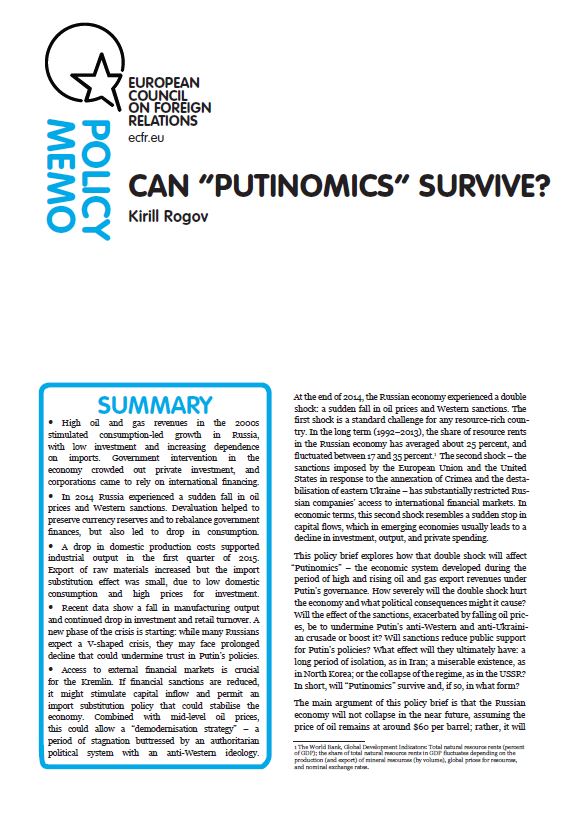Can “Putinomics” survive?
The Russian economy is set for a slow decline
In this policy brief, Kirill Rogov, Senior Research Fellow at the Gaidar Institute for Economic Policy (Moscow), examines the latest economic data and challenges widely held perceptions about the state of Russia’s economy.
While many Russians expect a ‘V-shaped’ crisis – with steep decline being followed by an equally steep bounce-back – Rogov argues that Russia’s economy is set for a longer decline. Though an immediate crash has been averted by a recovering oil price and devaluation of the ruble, it has come at the cost of significantly weakening both internal consumption and investment within Russia – affecting industries like automobiles, clothing and textiles and household goods.
According to Rogov, the future of Western sanctions towards Russia will play a vital role in determining the shape of this depression. Restrictions on the Russian financial sector are hindering Russian banks from providing the internal investment; repealing or even weakening sanctions might well promote capital inflow that the Russian economy needs.
Without such a change, Rogov posits that the Russian economy will likely undergo a ‘demodernisation’ process – a period of stagnation propped up by an authoritarian, anti-Western and autarchic ideology. He suggests that economic rebalancing within Russia will lead to a weakening and stagnation of consumption driven larger cities, but this could see the Kremlin lean more on smaller, more conservative towns to buttress Putin’s support.
Kirill Rogov says:
“Ultimately the West plays a crucial role in whether Putinomics can survive. In order for the devaluation of the ruble to help avert economic decline, capital investment from overseas will be key.”
“If the economic deterioration does take hold it could be a political problem for the Kremlin. If patriotic enthusiasm about Putin’s anti-western policies also falls, he will face a race against time to modify the Russian people’s expectations and reinforce his authoritarian institutions to deal with long-term stagnation.”
The European Council on Foreign Relations does not take collective positions. ECFR publications only represent the views of their individual authors.



